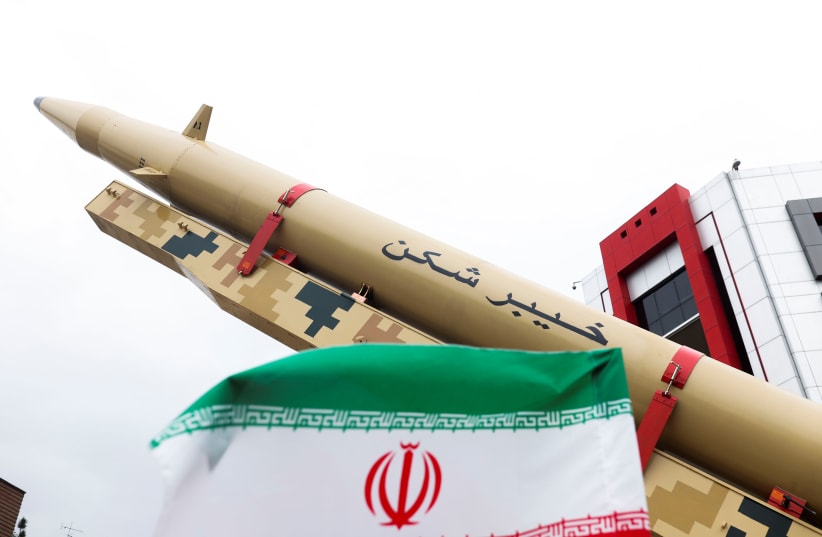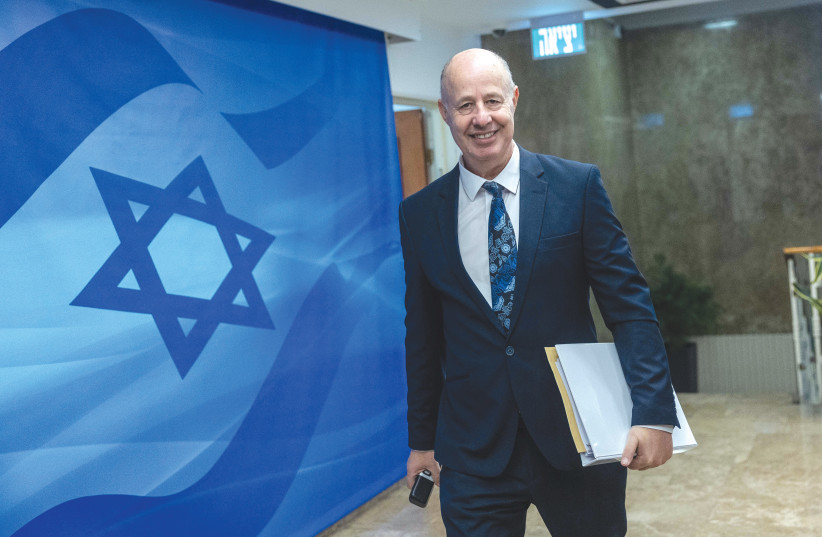The world must understand that these are the last moments by which to stop Tehran from producing nuclear weapons now the International Atomic Energy Agency detected Iranian uranium enrichment at 84%.
“It is now or never” to stop Iran, Israel’s National Security Adviser Tzachi Hanegbi said Monday in a public interview conducted by The Jerusalem Post’s Editor-in-Chief Yaakov Katz for the Conference of Presidents of Major American Jewish Organizations.
He spoke just one day after reports in Bloomberg and Reuters revealed that Iran was close to weapons-grade uranium enrichment at 90%.
The development “is worrying,” he said.
Iran had previously been understood to be enriching uranium at 60%.
“We are trying to convince everyone that in order to prevent a confrontation with Iran, you need to have a credible military threat” either by Israel, the US or the global community, he said.
Israel unsurprised at Iranian weapons-grade uranium enrichment
News that Iran was on the edge of weapons-grade enrichment did not surprise Israel, said Hanegbi who underscored that the Jewish state had long attempted to alert the global community to the growing danger from Tehran.
Initially, there were those who believed Iran’s uranium enrichment could be for civilian use, Hanegbi said, but the fact that Tehran has enriched uranium at 84%, which is only used for weapons production, leaves no doubt as to its motives.
“The world now acknowledges what we have tried to explain for so many years that Iran’s efforts are not for civilian use.”
Tzachi Hanegbi
“The world now acknowledges what we have tried to explain for so many years that Iran’s efforts are not for civilian use,” Hanegbi said.
He called for the IAEA’s Board of Governors to take a tough stance against Iran when the 35-nation body convenes on March 6 in Vienna.
Among the IAEA members who have been more reluctant to take a tough stance on Iran have been Germany and Great Britain, Hanegbi said.
The United States in contrast, he said, is much closer to holding the same stance as Israel.
The two countries are on the same page now, “more than ever,” he said.
“The United States was reluctant for a very long time to accept our bottom line,” Hanegbi said. When the Obama Administration signed the Joint Comprehensive Plan of Action in 2015, otherwise known as the Iran deal, along with five other world powers, Israel felt like it had failed, he explained.
The signatories to that deal believed it would delay Iran’s ability to develop a nuclear weapon while Israel, which opposed the deal, held that it made it easier for Tehran to ultimately become a nuclear power.
Former US president Donald Trump agreed with Israel and exited the deal in 2018. US President Joe Biden had initially sought to revive it but has since concluded that it is not possible to do so.
The deal is so dormant that the issue doesn’t even come up in Israel’s conversations with US officials, Hanegbi said.
The US says “it is off the table,” Hanegbi said.
This allows the two countries to discuss a “more realistic approach,” Hanegbi said.

